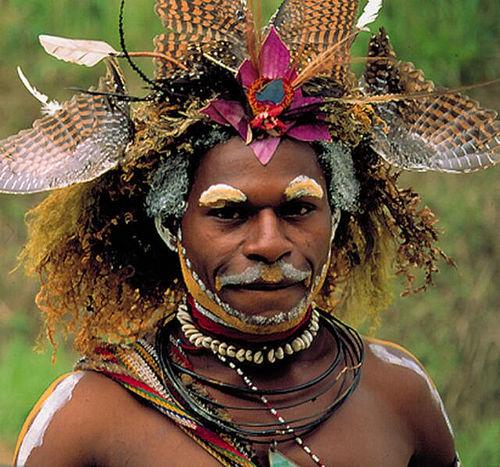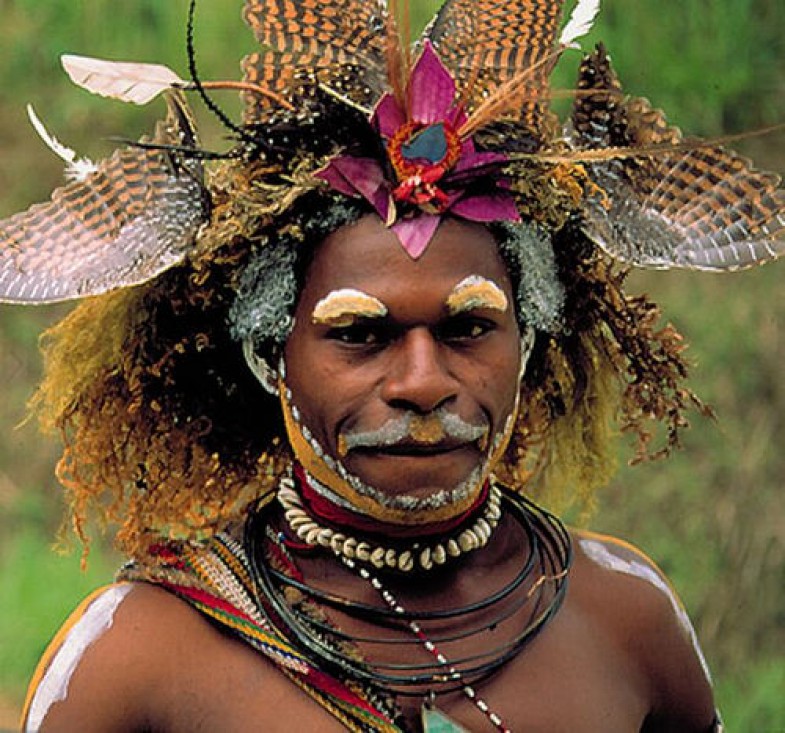One of the more vexing difficulties facing indigenous peoples around the world is how to protect their distinctive communal knowledge from being exploited by multinational corporations and other outsiders. The local knowledge can take many forms — ethnobotanical knowledge about the healing properties of plants and substances; a people’s ancestral songs, designs and artworks; and sacred knowledge whose access and use is meant to be restricted to designated individuals.
Intellectual property laws are usually ill-suited for protecting such knowledge because they insist upon western norms of individual rights and commodification, with the idea that such knowledge will be bought and sold. Many peoples of the “developing” world tend to have other interests entirely. They want to share, modify and protect the integrity of their knowledge over generations, and not sell them to outsiders.

Photo by friskodude, via Flickr, licensed under a Creative Commons Attribution, NonCommercial, No Derivatives license.
Yet as a precondition for international trade, the U.S. and other countries that dominate the World Trade Organization and the World Intellectual Property Organization often insist that small countries with communal knowledge adopt western IP laws. The U.S. and other developed countries often promise that IP laws will help such countries develop their local economic base, but that is rarely the case. The more typical result is to allow multinational companies to seize genetic information (“biopiracy”), sacred designs and other communal knowledge for their own private market gain.
It is exciting, therefore, to learn of a new proposed framework for protecting the intangible knowledge of indigenous peoples. David Martin, the executive chairman of an Arlington, Virginia, company, M-CAM, has come up with the Heritable Knowledge Communal Innovation Trust. It’s a legal model that draws upon existing contract law and minor modifications to existing cultural treaties.
I ran into David at a recent conference, Globalization for the Commons Good, held at Loyola University in Chicago. David does extensive consulting on international IP issues, including with the governments of Samoa, Tonga, Papua New Guinea, the Fiji Islands and other nations in Oceania.
In a recent article in the April 2009 issue of Convergence (“the journal of the section on intellectual property, communications and technology of the International Bar Association”), Martin proposed that island countries in Oceania propose a tradeoff to any potential trading partners: In exchange for the island nation recognizing western IP rights and doing business with the developed country, the developed country would have to recognize a few minor modifications in existing treaties and contract law.
For example, in a 1970 UNESCO convention, instead of using the word “property” in talking about songs, designs, texts and other cultural works, the island nation would substitute the term “Communal Heritable Trust.” By lodging cultural works in a communal heritable trust – instead of treating them as units of conventional property held by individuals and protected by copyrights, trademarks or patents – an island country would be able to protect collective works as collectively managed intangible property. Through the Communal Heritable Trust, a people would legally register and protect its many “written, artistic, oral, kinesthetic [and] customary practices” and hold them in perpetuity. It would also allow them to prevent unauthorized derivative uses.
Island nations could also insert new provisions into trade agreements to seek repatriation of cultural works taken from them in the past without their knowledge or in violation of the law. This need not be a huge shift of legal precedent. Martin proposes the simple measure of adopting language from an American law, the Native American Graves Protection and Repatriation Act, enacted in 1970. This law sets forth a process for Native Americans to legally reacquire possession of objects stolen from them in the past.
[It’s worth noting that Martin uses the term “heritable knowledge” instead of “traditional knowledge.” He points out that the latter term, favored by “developed” countries,” implies that communal knowledge is a static artifact of the past, rather than knowledge that is living, dynamic and evolving.]
The beauty of Martin’s proposal is its ability to use existing trade and property law, with minor modifications and the use of contract law, to keep a community’s cultural knowledge inalienable – that is, to protect it from both undesired market exploitation and government seizure. The article that outlines Martin’s scheme is called “Heritable Knowledge Framework and the Development of Communal Innovation Trusts: An Ethical Framework for Development, Stewardship and Trade.”



